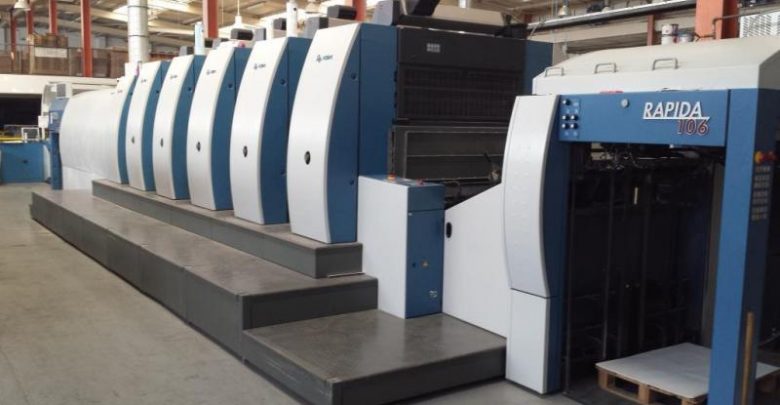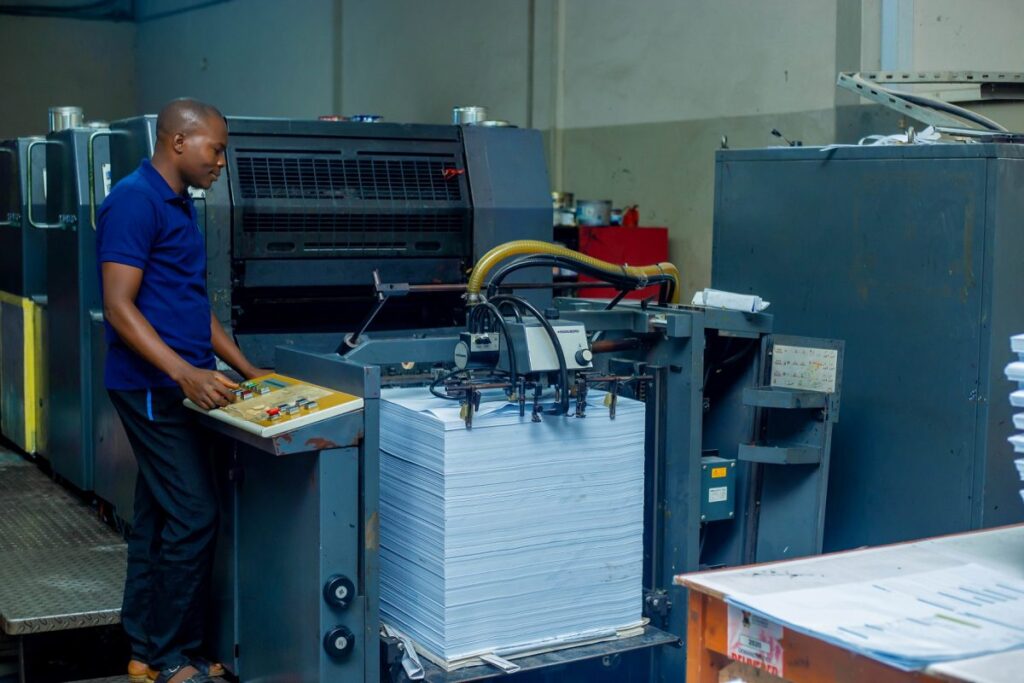The Nigerian print and packaging sector is poised at a pivotal moment. Modern automation, intelligent workflows, and sustainable approaches are converging to reshape an industry long held back by outdated systems and resource constraints. According to Olakunle Ogunjobi, Technical Director at Randomsoft Limited, this tech‑driven transformation is not just necessary—it’s already underway.
Table of Contents

A Critical Turning Point
Nigeria’s print and packaging landscape is jittery with anticipation. Accelerating demand from fast-moving consumer goods, pharmaceuticals, and agribusiness is exposing structural inefficiencies. Ogunjobi notes that many local firms still operate on legacy platforms ill‑suited to today’s fast‑paced market. Their productivity is hampered by repetitive manual processes, suboptimal machine usage, and significant waste.
The solution lies in embracing intelligent, automated, and sustainable technologies, a transformation already brought within reach through global partnerships. Randomsoft collaborates with top-tier Original Equipment Manufacturers (OEMs) to deploy next‑generation tools—LED‑UV curing systems, hybrid digital‑flexo presses, and water‑washable plate technology—designed to boost output, reduce printing turnaround time, and lessen environmental impact.
Efficiency, Quality, and Brand Consistency
From prepress to final production, digital printing platforms are eradicating errors and accelerating workflows. Ogunjobi underlines the shift:
“Digital print technology has eliminated many inefficiencies. From prepress to production, we now see automation tools that streamline jobs, improve consistency, and reduce lead times.”
Brand owners are noticing. Today’s Nigerian packaging features sharper logos, richer colours, and uniform quality, helping local companies stand out on both domestic and export markets.

Smart Packaging for the Digital Age
The next frontier? Smart packaging. Ogunjobi envisions QR codes, RFID tags, and traceability markers becoming standard across products, streamlining logistics, improving consumer engagement, and enabling brands to run targeted promotions. As global supply chains tighten, these tools help establish credibility and visibility in crowded markets.
The Roadblocks: Cost, Training & Infrastructure
Despite this optimism, challenges linger. Ogunjobi warns that importing cutting‑edge presses isn’t sufficient if operators aren’t equipped to run them:
“Most of our press operators are trained on legacy systems. Without proper upskilling, new technologies won’t reach their full potential.”
The financial barrier is steep, too. High upfront costs exceed what most SMEs can afford. Infrastructure—electricity, broadband, maintenance—lags behind. Yet, Randomsoft believes these hurdles can be tackled with targeted investment in skills and local capacity.
Introducing FLEXO EDGE 2025: More Than a Conference
Enter FLEXO EDGE 2025, Randomsoft’s flagship initiative. Positioned as a knowledge and capability accelerator, the upcoming event brings together global thought leaders, OEM experts, and local practitioners. With practical workshops, real‑time machine demos, and sustainability masterclasses, FLEXO EDGE aims to embed modern skills across Nigeria’s value chain.
Ogunjobi emphasises the event’s hands‑on philosophy:
“FLEXO EDGE 2025 isn’t just another industry seminar. It’s a convergence of global expertise and local ambition … focusing on sustainability, smarter production, and knowledge‑sharing.”
Investing in a Brighter Tomorrow
Randomsoft’s ambitions stretch further. Its blueprint includes the launch of a dedicated flexo innovation and training centre—a hub where technicians can work with state‑of‑the‑art equipment under expert mentorship. These investments not only boost local capacity but also encourage intellectual and environmental ownership within the industry.
Celebrating Print’s Evolution
Dispelling the myth that print is outdated, Ogunjobi views the sector as rejuvenated. He urges young Nigerians to see beyond stereotypes:
“Print is not outdated, it’s evolving. From software development to green engineering, there’s room for thinkers, builders, and problem solvers. This is a future‑proof industry, and the opportunities are massive.”
Sustainability at the Helm
Sustainability isn’t an afterthought—it’s central to this transition. LED‑UV curing slashes energy use. Water‑washable plates mitigate solvent pollution. Hybrid presses help cut material waste. Smart packaging enhances traceability, decreasing spoilage and counterfeiting.
This environmental consciousness aligns with global trends. A Packaging Gateway report confirms that paper‑based and reusable packaging designs are revolutionising markets worldwide. Meanwhile, industry experts link the rise of digital printing directly to improved sustainability, marking it as a mainstream movement.
A Blueprint for Progress
To thrive in a demanding future, the Nigerian print and packaging industry must rally around three strategies:
- Strategic Investment in Tech: Embrace automation, digitalisation, and sustainable platforms.
- Targeted Skills Development: Upskill existing operators and cultivate fresh talent.
- Global‑Local Collaboration: Leverage partnerships with OEMs to bridge the innovation gap.
Looking Forward
As Nigeria’s industrial base diversifies, the shift toward tech‑driven print and packaging isn’t optional—it’s essential. This transition demands significant investment, unwavering commitment to capacity development, and a sustainability mindset.
Randomsoft, through initiatives like FLEXO EDGE 2025 and its upcoming training centre, is leading the charge. Ogunjobi’s message is clear: through strategic innovation, collaboration, and professional training, Nigeria can chart a course toward a competitive, resilient, and globally recognised print and packaging industry.

Conclusion
A tech‑driven renaissance is sweeping across Nigeria’s print and packaging sector. No longer sidelined, the industry is reinventing itself—embracing automation, digital consistency, and traceable smart packaging. With the right support—financial, educational, and infrastructural—Nigeria has an opportunity not just to catch up, but to set new standards for emerging markets.
As Ogunjobi aptly states, print isn’t fading—it’s evolving. And those bold enough to pioneer the transformation stand to shape its future.
Join Our Social Media Channels:
WhatsApp: NaijaEyes
Facebook: NaijaEyes
Twitter: NaijaEyes
Instagram: NaijaEyes
TikTok: NaijaEyes







































